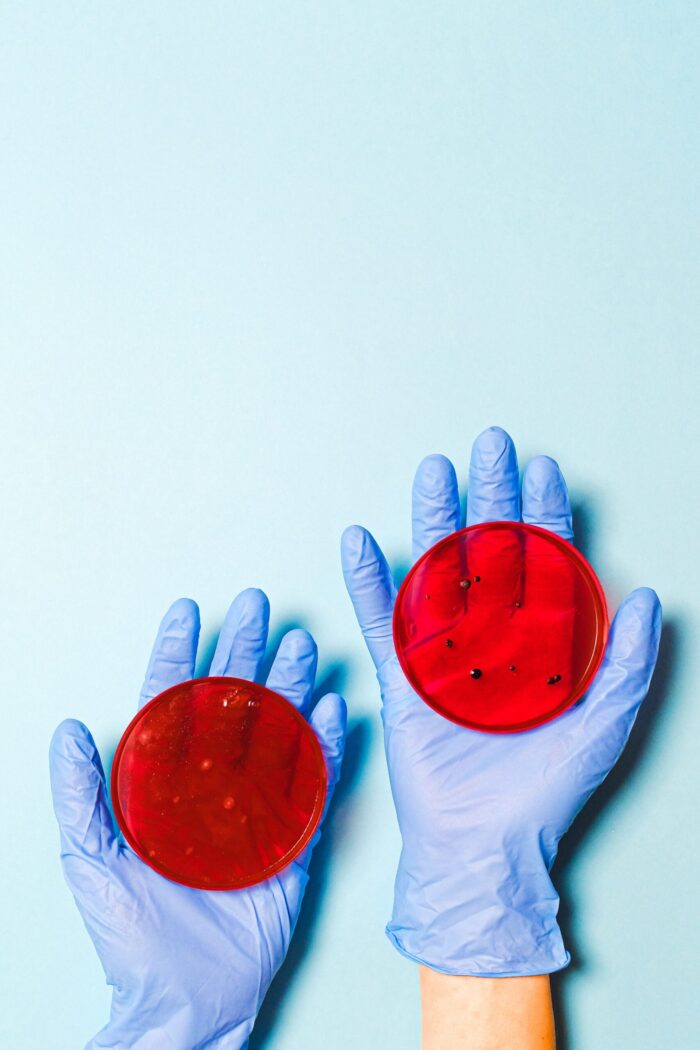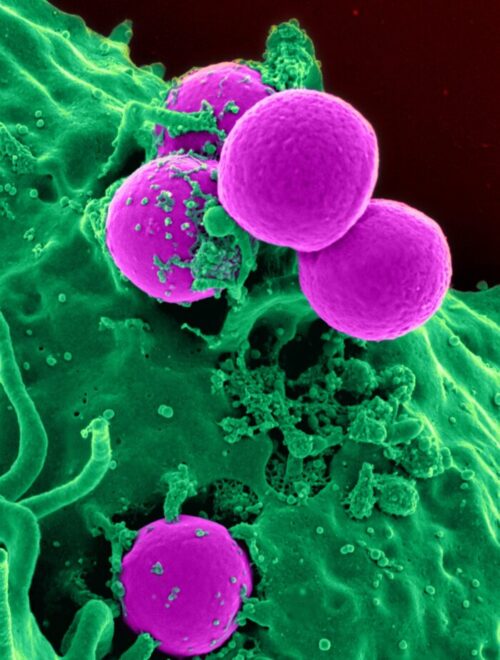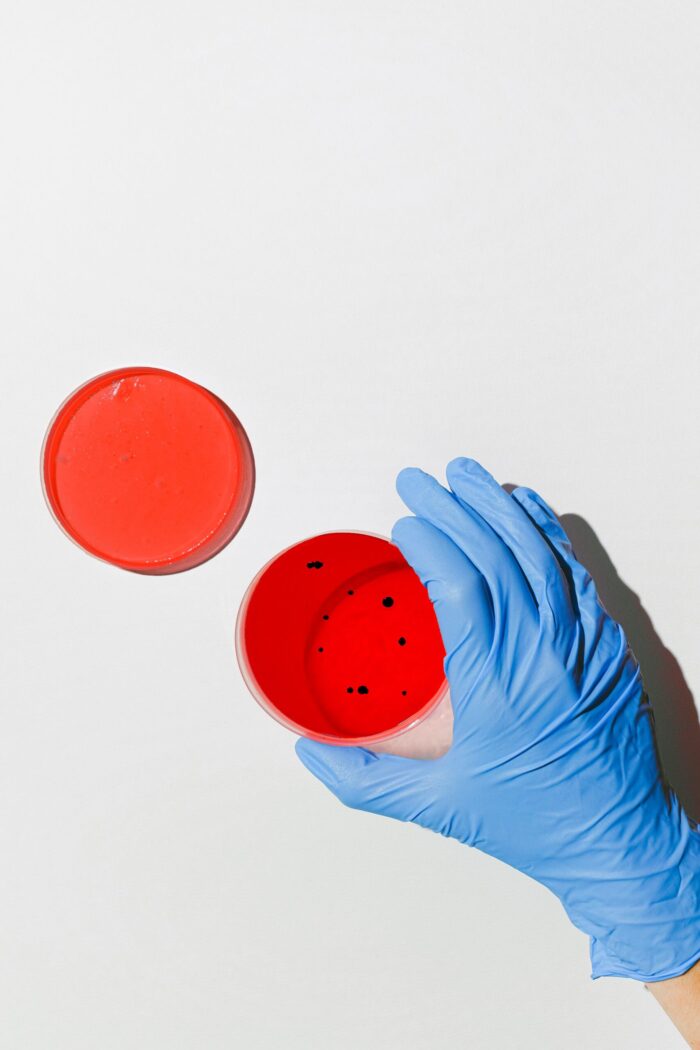

Unit 07 :
Bacteria






Vocabulary
Let’s learn about different words related to bacteria!
Part 1
1. pathogen /ˈpæθ.ə.dʒən/
(n) any small organism, such as a virus or a bacterium that can cause diseases
2. Toxin /ˈtɑːk.sɪn/
(n) a poisonous substance, especially one produced by bacteria, that causes disease
3. Capsule /ˈkæp.səl/
(n) a flexible (= not stiff or fixed) structure surrounding an organ, joint, or other structure in the body
4. Fission /ˈfɪʃ.ən/
(n) the division of a living cell as part of reproduction
5. Saprophyte /ˈsæp.rə.faɪt/
(n) an organism, such as a fungus or a bacterium, that lives and feeds on dead and decaying plant and animal matter
6. Aerobe /ˈer.oʊb/
(n) a microorganism (= a very small living thing such as a bacterium) that grows in air or needs oxygen to live
7. Antibiotic /ˌæn.t̬i.baɪˈɑː.t̬ɪk/
(n) a medicine or chemical that can destroy harmful bacteria in the body or limit their growth
8. Colony /ˈkɑː.lə.ni/
(n) a group of animals, insects, or plants of the same type that live together
9. acidophilus /ˌæs.əˈdɑː.fəl.əs/
(n) a type of bacterium used to make yogurt or as a medicine to help people digest food if they have a stomach illness
10. amoeba /əˈmiː.bə/
(n) a very small, organism consisting of only one cell
Exercise 1
Match the correct meaning to each vocabulary.
1. aerobe___ 2. colony___ 3. antibiotic___ 4. fission___ 5. toxin ____
a) a poisonous substance, especially one produced by bacteria, that causes disease
b) the division of a living cell as part of reproduction
c) a medicine or chemical that can destroy harmful bacteria in the body or limit their growth
d) a group of animals, insects, or plants of the same type that live together
e) a microorganism (= a very small living thing such as a bacterium) that grows in air or needs oxygen to live
Part 2
11. antimicrobial /ˌæn.t̬i.maɪˈkroʊ.bi.əl/
(adj) able to destroy harmful microbes (= small living things that can cause disease)
12. bacterium /bækˈtɪr.i.əm/
(n) a type of very small organism that lives in air, earth, water, plants and animals, often one that causes disease
13. biomining /ˌbaɪ.oʊˈmaɪ.nɪŋ/
(n) a way of obtaining metal from ore(= rock that contains metal) or waste by using simple living organisms such as bacteria or fungi to break down
14. botulism /ˈbɑː.tʃə.lɪ.zəm/
(n) a serious type of food poisoning caused by bacteria in badly preserved food
15. flagellum /fləˈdʒel.əm/
(n) a long, thin part similar to a tail, used for movement by some cells, bacteria, and other small organisms
16.decomposer /ˌdiː.kəmˈpoʊz.ɚ/
(n) an organism such as a bacterium or fungus that makes dead plant and animal material decay
17. distemper /dɪˈstem.pɚ/
(n) a type of infectious disease that can be caught by animals, especially dogs
18. microbe /ˈmaɪ.kroʊb/
(n) a very small living thing, especially one that causes disease, that can only be seen with a microscope
19. microorganism /ˌmaɪ.kroʊˈɔːr.ɡən.ɪ.zəm/
(n) a living thing that on its own is too small to be seen without a microscope
20. prokaryotic /proʊ.ker.iˈɑː.t̬ɪk/
(adj) of or relating to organism such as bacteria that have only one cell, which lacks a nucleus
Exercise 2
Describe the pictures with your teacher.



